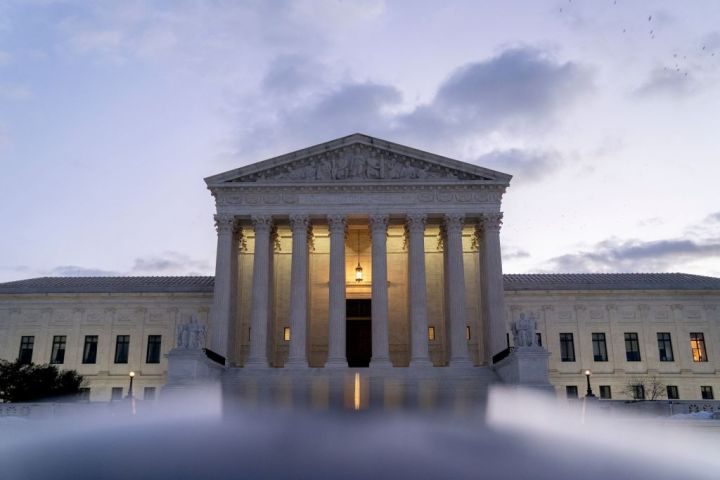
The Supreme Court blocked the Biden vaccine mandate for businesses. Now what?
The Supreme Court blocked the Biden vaccine mandate for businesses. Now what?

The Supreme Court on Thursday issued two big decisions on COVID-19 vaccine mandates in the workplace – blocking an emergency order by the Occupational Safety and Health Administration that large employers require employees to be vaccinated or tested weekly, but permitting a similar mandate at health care facilities that receive federal funds.
For more detail, “Marketplace Morning Report’s” Sabri Ben-Achour spoke with Debbie Berkowitz, a former senior OSHA official who’s currently a fellow at Georgetown University. Below is an edited transcript of their conversation.
Sabri Ben-Achour: So bottom line, how will this decision affect workers?
Debbie Berkowitz: Well, I think it’s sort of a stunning decision that they effectively sort of killed the broad OSHA standard when we’re facing a surge of COVID-19 cases.
Ben-Achour: You know, the court said OSHA can’t make companies have require vaccines and testing. But what if they want to? I mean, could individual employers still do this on their own?
Berkowitz: Yes, absolutely. Employers can do a lot of things on their own to protect workers. Unfortunately, in some states, because of the politicization of this whole COVID crisis and how to mitigate the spread, some states have banned requiring vaccines. And that’s really where this standard could have made a difference had the court upheld it. When you’re at work, you don’t get to choose who you work with, who you’re staying next to, what customers you interact with. You have no control over the safety of your workplace. And yes, now it’s going to be up to employers to implement protections on their own.
Ben-Achour: The court did say that basically OSHA could have these kinds of mandates for jobs where there was a specific risk, specific occupation-related risk around COVID. Do you think OSHA is going to start issuing mandates for particular occupations?
Berkowitz: Right, the court did say that there are some workplaces that are higher risk, for example, health care workers, which they let that vaccine stand for, but they talked about other workplaces where people work in crowded or cramped environments, supermarkets, meatpacking – what’s interesting is one of the big industries that brought this lawsuit that was represented by very conservative groups, was some supermarkets. So we hope the Biden administration moves forward to at least now issue some kind of emergency protections for workers – the frontline workers, that those workers get some protection: vaccine testing, high-quality face masks, social distancing, ventilation – that they could do that and states could do that as well.
There’s a lot happening in the world. Through it all, Marketplace is here for you.
You rely on Marketplace to break down the world’s events and tell you how it affects you in a fact-based, approachable way. We rely on your financial support to keep making that possible.
Your donation today powers the independent journalism that you rely on. For just $5/month, you can help sustain Marketplace so we can keep reporting on the things that matter to you.

















